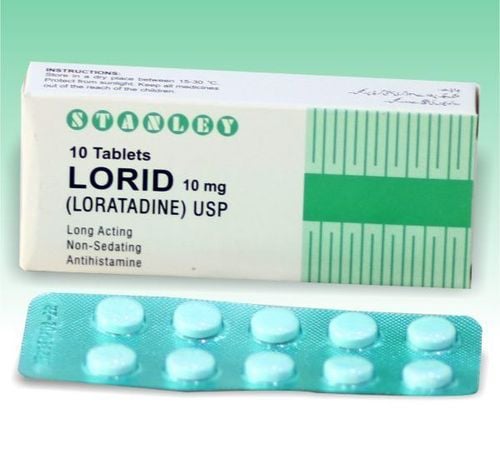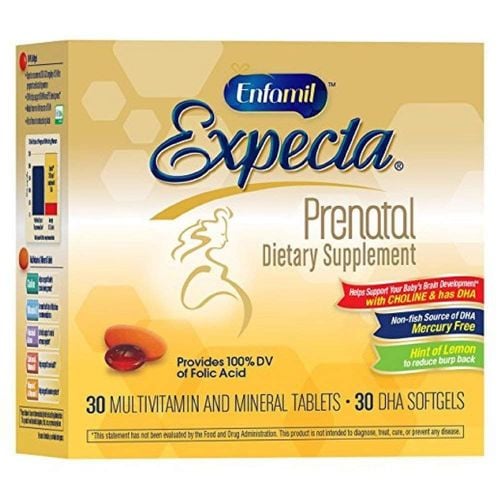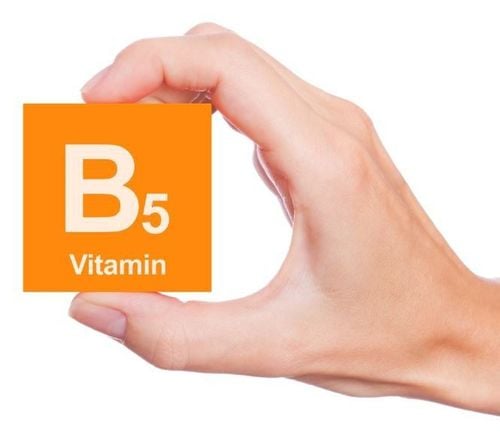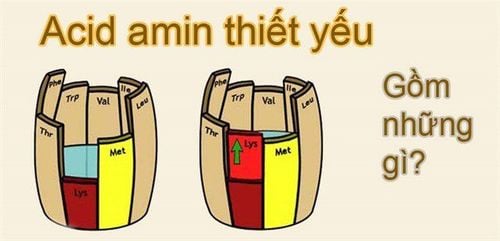This is an automatically translated article.
Zinc is an important micronutrient in the growth of children. Moreover, the role of zinc also helps to strengthen the immune system and the nervous system. That's why it's important to give your child zinc or add zinc-rich foods to their daily diet. By knowing what zinc does and how to provide adequate zinc for children, new parents can ensure a source of nutrients for the comprehensive development of their children.
1. What is Zinc? What does zinc do?
Zinc is a trace mineral that more than 70 enzymes need to regulate digestion and metabolism in the body. Children with zinc deficiency are at increased risk of birth defects and growth abnormalities, which makes zinc an important nutrient in any diet. In addition, the role of zinc is also necessary for the proper growth and development of the reproductive organs in children.The benefits of zinc for babies:
Zinc is an antioxidant, which is meant to help reduce the formation of free radicals in the body and help prevent free radicals that can potentially damage cells. other cells in the body. Zinc supports skin health, maintaining the integrity and elasticity of the epidermis. This also includes helping a child's skin regenerate, maintain skin structure, and aid in the healing of minor injuries and injuries from falls. Zinc supports eye health, helping to maintain children's vision. Zinc supports immune system function. The immune system is a built-in defense mechanism designed to help ward off unwanted germs from entering the body and causing illness. Therefore, zinc helps support this, maintaining healthy immune system function and reducing the risk of disease. Additional Roles of Zinc: In addition to the useful functions mentioned above, zinc also helps support nervous system function, maintain neurotransmitters, maintain cognitive function, support growth and healthy development in young children.
2. Zinc needs by age
Institutes of Medicine and Nutrition around the world have agreed that the adequate intake of zinc for infants up to 6 months is 2 mg per day. For older infants, children and adults, the zinc requirement by age is determined as follows:Infants and children 7 months to 3 years of age, zinc requirement is 3 mg/day Children from 4 to 8 years old, zinc requirement is 5 mg/day Children 9 to 13 years old, zinc requirement is 8 mg/day Girls 14 to 18 years old, zinc requirement is 9 mg/day Boys 14 years old Age and older, zinc requirement is 11 mg/day

Vai trò của kẽm quan trọng với trẻ và cần bổ sung theo từng giai đoạn khác nhau của trẻ
In addition, the upper intake level, or safe maximum amount for zinc supplementation for subjects not taking zinc under medical supervision is:
Infants up to 6 months, the amount of zinc consumed should not exceed 4 mg/day Children from 7 to 12 months, zinc intake should not exceed 5 mg/day Children from 1 to 3 years old, zinc intake should not exceed 7 mg/day Children from 4 to 8 years old, zinc absorption Consume not to exceed 12 mg/day Children 9 to 13 years of age, zinc intake should not exceed 23 mg/day Children 14 to 18 years of age, zinc intake should not exceed 34 mg/day Adults 19 years of age and older up (including pregnancy and lactation), zinc intake should not exceed 40 mg/day However, when zinc supplementation is required for the treatment and prevention of other diseases, the recommended dose determined on a case-by-case basis.
3. How to supplement zinc for children?
Zinc is an essential mineral that plays an important role in the human body. Accordingly, providing a healthy amount of zinc for children needs to be done every day, through zinc supplements with other essential vitamins or foods rich in zinc.
The following is a list of the top ten zinc-rich foods. However, if your child suspects a zinc deficiency, remember that animal foods are a better source of zinc than plant foods.
Seafood: Oysters, crabs and lobsters Beef and lamb Wheat germ Spinach and other leafy greens like amaranth leaves, cloves Pumpkin and squash seeds, sunflower seeds, chia seeds and flax seeds other grains and seeds such as cashews, pine nuts, pecans, almonds, peanuts and hazelnuts Cocoa and chocolate Cooked lean pork and chicken Beans Mushrooms Accordingly, although food is derived Plants have zinc, but they are in low doses and are often not enough to meet the recommended daily intake. Therefore, children should be encouraged to eat yeast-enriched whole-grain bread and soy foods to increase their intake of this mineral. Zinc-fortified cereals and whole grains are other options for kids who don't eat meat and dairy products.

Vai trò của kẽm rất quan trọng, cha mẹ có thể bổ sung kẽm cho trẻ qua một số loại thực phẩm
Besides, if you are planning to supplement zinc for your child, here are some things parents should know:
Too much zinc supply can cause excess zinc, the body will experience side effects such as vomiting, nausea, diarrhea and abdominal pain, fever and coma. High doses of zinc in children have been associated with increased blood cholesterol levels, low HDL levels, and recurrent infections. Zinc supplements can interact with other medications such as immunosuppressants, blood pressure medications, and antibiotics. Children under 18 years of age are not recommended to use over-the-counter zinc supplements unless prescribed by a doctor. Do not use intranasal zinc to supplement zinc because of the association with loss of smell. Therefore, parents should always consult their GP or certified dietitian before choosing to use zinc supplements for children as children may experience the above-mentioned side effects while taking them. overdose of this mineral. In addition, attention should be paid to the simultaneous addition of other essential micronutrients to help balance and harmonize the content of substances as well as support each other in the metabolic reactions of substances in the body.
In summary, the role of zinc is extremely essential in the development and strengthening of the immune system, protecting the body. When there is a complete and varied diet of foods, the risk of zinc deficiency is difficult to get. However, when children have respiratory infections, diarrhea or skin lesions, parents should supplement zinc for children, with balanced levels to ensure comprehensive development in the first years of life.
In addition to zinc, parents also need to supplement their children with other important vitamins and minerals such as lysine, chromium, B vitamins,... errands.
Please regularly visit Vinmec.com website and update useful information to take care of your baby and family.













